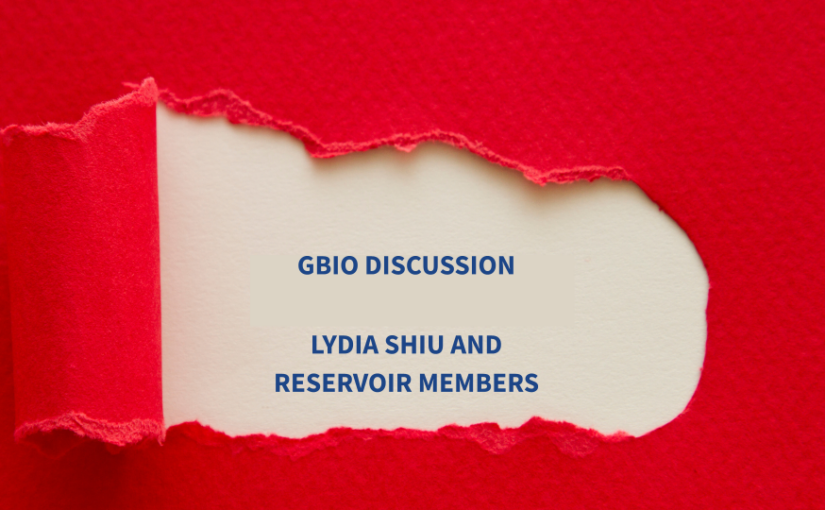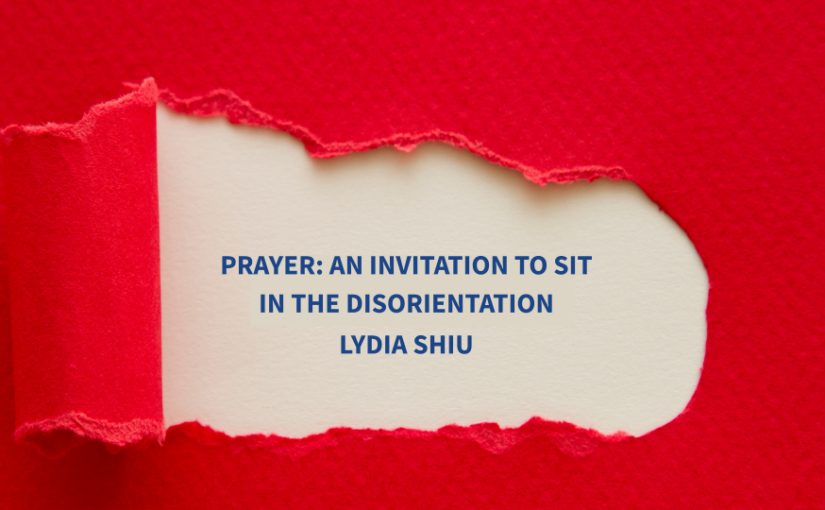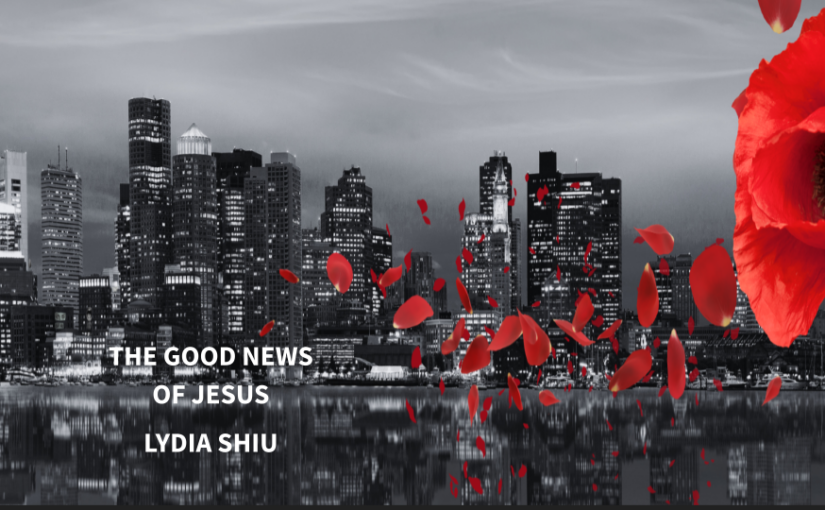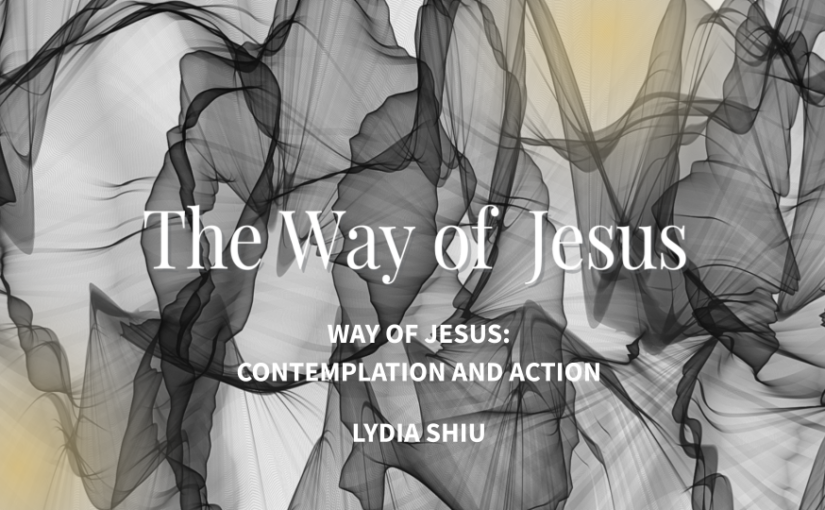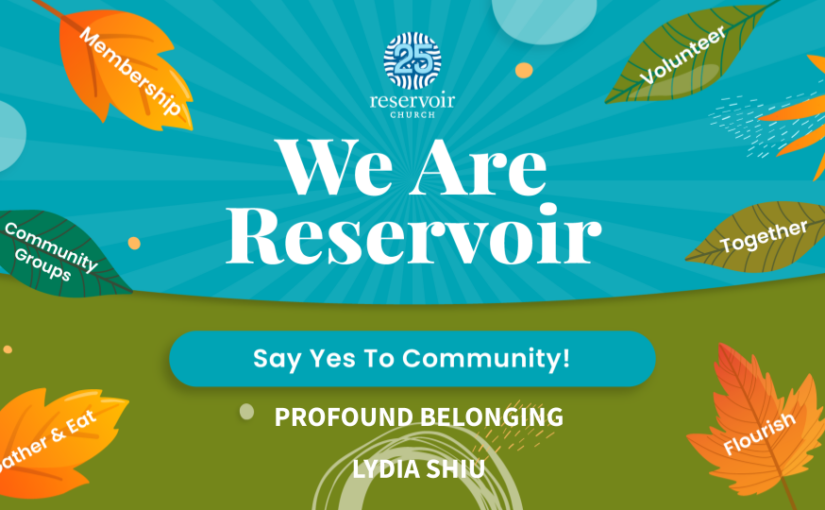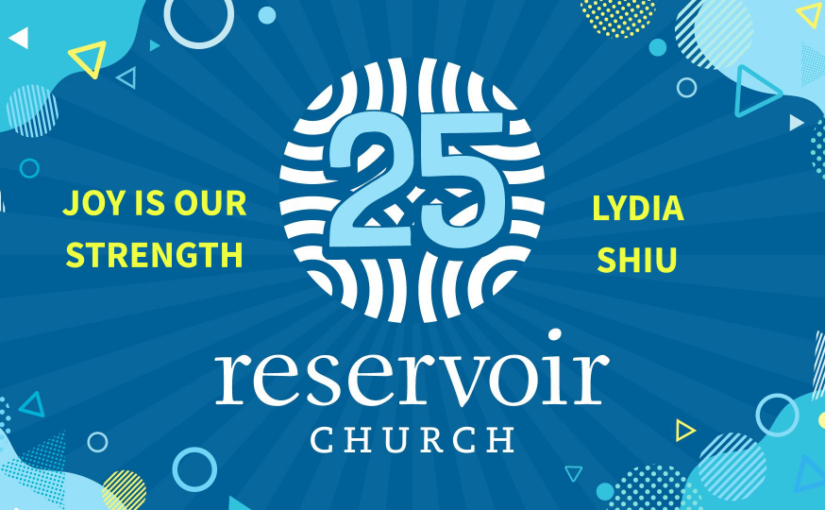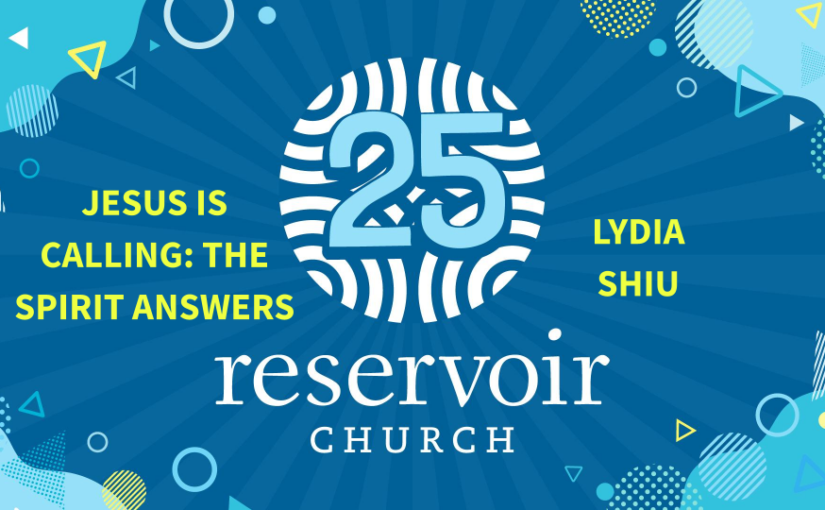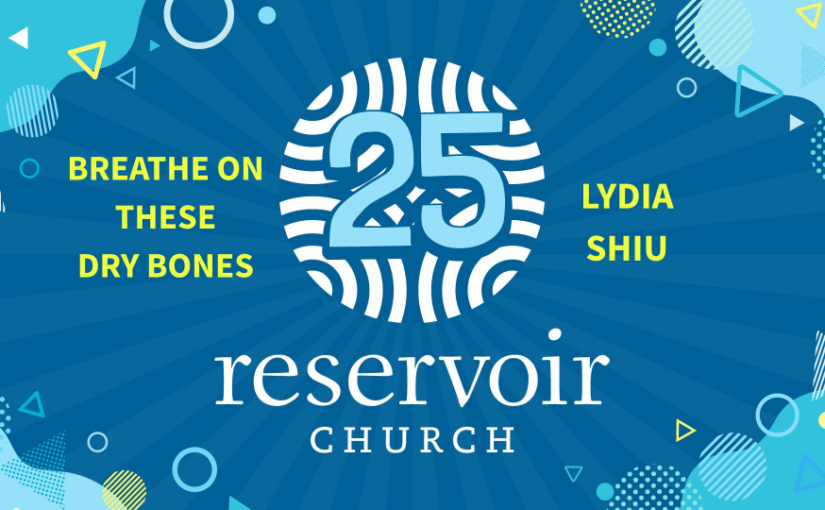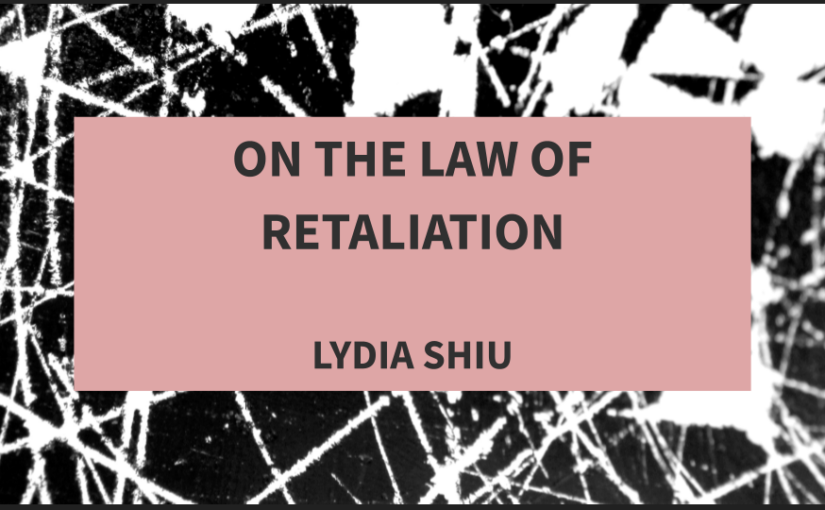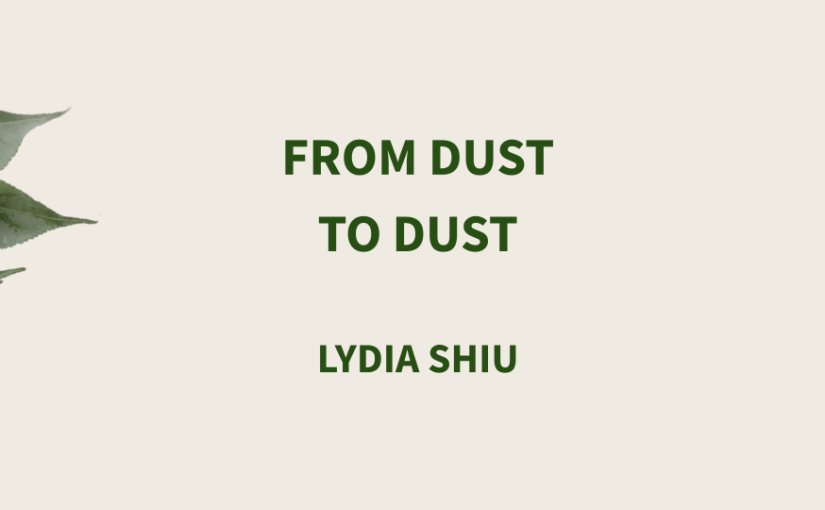Roman 8:15-17
For you did not receive a spirit that makes you a slave again to fear, but you received the Spirit of sonship.
And by him we cry, “Abba, Father.” The Spirit himself testifies with our spirit that we are God’s children.
Now if we are children, then we are heirs–heirs of God and co-heirs with Christ, if indeed we share in his sufferings in order that we may also share in his glory.
There’s a scene in the hit series on Netflix called Beef, where the main character, Danny Cho, played by Steven Yeun (that one Asian guy on Walking Dead – another great show) finds himself at a church. Now it’s the 3rd episode, after (I don’t think I’m spoiling it if you haven’t seen it) the 1st episode where we see him buying these hibachi grills at a hardware store to attempt suicide.
Danny walks in the lobby as the worship leader is saying,
“God, we thank you for this Sunday. We thank you for inviting us here today to gather in your presence. We thank you for who you are and what you’ve done.”
As he clicks open the door into the chapel as the voice gets louder,
“Thank you for the cross. We thank you for Jesus.”
He walks in as he continues,
“Lord Father God we come to you.”
A pastor welcomes him, ushers him to a seat and he takes a seat as he notices others standing, some raising their hands, he decides to stand too. They begin singing softly,
“Are you hurting and broken within? Overwhelmed by the weight of your sin? Jesus is calling.”
And then the drums kick in
“Have you come to the end of yourself. Do you thirst for a drink from the well? Jesus is calling.”
And you can see Danny starting to feel stuff, his eyes watering. And it pours out, all that Danny has been holding, all that he’s struggling through, he lets it go as he stands there at a church during a praise song in a worship service.
Has that ever happened to you? All that you’re holding in, released in the presence of others who are also there to feel God? When the lyrics of a praise song seem to hit you when you weren’t expecting at all.
Praise songs are a weird powerful experience. They are prayers, often intimate, vulnerable. Mix that in with some beautiful vocals and drums man. That beat drops and I’m like oh crap, it’s about to get real. Jesus is knocking. And I’m not gonna be able to hold it together looking all cool at church. At some point last week, I was watching Bel play the drums. She was hovered over, hitting the beat with her whole body, consistent, dedicated, almost invitational. Like a friend who comes up to you at the dance floor with, “bring it in bring it in” energy and you have to step in.
I love that about praise music and worship. What audacity it has to all of sudden ask me in a melodic trance,
“Are you hurting and broke within?”
“Have you come to the end of yourself?”
Who wrote this song and have you been following me around this week? How you gonna ask me that right here right now, in front of all these people? And just like Danny, you look around, we’re all standing there asking ourselves, asking God, asking together, asking one another, our hurts, our needs, our longing, our hearts for healing, love, and acceptance. And the song is telling you, Jesus is calling you into that. And you’re just like, “really? Jesus, are you for real?” What a sweet invitation, through music, to know that someone, Jesus is there calling you with father’s arms wide open, with forgiveness.
This scene stood out to me because it was a familiar one. I had been there. After college, I was in San Francisco, working 80-90 hours a week, feeling burnt out and a bit lost too. Wondering what am I doing, who am I, and (after not having gone to church for a few years) I took myself to church one day. I can’t remember the songs from the day, it was actually the sermon that shifted me back to Jesus. So much so that I ended up here becoming a pastor, preaching to folks – but like the song in Beef, and like a song we sang last week or few weeks ago, words spoken at church seem to pierce me to the core of questions I had for myself.
Like the song we sometimes sing here, it says
“When I’m feeling low, and my heart is weak, I know you have the strength to carry me. When I’m broken down and I’m filled with grief. I know you’re far beyond what my mind conceives.”
And I remember when I would sing these songs, sometimes one line would so clearly speak to what I’m going through,
“feeling low and weak, broken down.”
but then sometimes I wasn’t sure,
“if you have the strength to carry me, and who is you, and are you even carrying me at all because I don’t feel carried at all to be honest.”
I remember I’d sing some lines and then have to pray during other lines of the song when they are all confident in their faith, assurance of God’s promises, I’d be muttering under my breath, prayers of questions,
“really Jesus? Are you there? Show yourself?”
I don’t know why we don’t have more praise songs like that. Questions rather than basking in the assurance like, “isn’t He wonderful?” And I’m standing there like “is He though?” But I guess that’s sometimes been the invitation for me. Someone else’s faith of assurance. Their confidence. Their witness and confession of what God has done for them and I wonder, could that be for me?
Danny’s song would’ve done it for me too. Cause I was looking. I was looking for somebody to call me.
There was a time when I really struggled with my identity. It was a combination of, not having the right job, so vocationally I felt lost, I had left church communities so I didn’t really have a “people.” I was in a new city with no family around, so lonely.
And as an Asian American immigrant, you kind of feel like, well you’re not Korean anymore, but also you’re not really accepted as an American. This feeling of estrangement and lack of belonging no matter where you go will mess with your head. I remember learning the word ladle in my 20s. My mom never called it that, obviously, growing up, she called it joo-guk. A simple small word that has such connection to a sense of home and comfort. But I didn’t really have any Korean friends, so I’d never say the word joo-guk. I learned it when I threw a MySpace Karaoke party for my birthday at the seminary and we were using upside down ladles as mics.
As an immigrant, sometimes you really do feel like a motherless child. A stranger here. A stranger there. Never feeling like you’re home.
Our scripture text today says that we are God’s children. That we have received the Spirit of sonship. Another manuscript says, the Spirit of adoption. Adoption.
And if we have received the spirit of adoption, then, that means we are heirs.
You see this is the crux of the gospel, the good news. That you are claimed as God’s own children. That you are loved and you belong. The gospel of adoption. No matter where you come from, what you’ve done, what you’ve left undone, what you’ve accomplished or haven’t accomplished. No matter where you were born, your nationality, your citizenship, or your race, you have been adopted into this family and you are God’s own beloved child.
For me when I couldn’t figure out my job, when I was single feeling sorry for myself cause I didn’t have a boyfriend, when I didn’t feel Korean enough or American enough, it gave me ground to fall on to to know that God was my Abba Father. When I felt like I was flailing and I wasn’t sure of myself, I heard the gospel, the good news of Jesus saying to me, you’re mine. That’s what grounded me from falling away further into my own depth of despair and cynicism. And to hear this gospel, that when no one’s calling, Jesus is calling, I ate it up. I was falling and I needed it, so I fell into the hands of God.
Here’s how Barbara Brown Taylor put it in her book, Leaving Church: A Memoir of Faith (p.218)
“If I had to name my disability, I would call it an unwillingness to fall. On the one hand, this is perfectly normal. I do not know anyone who likes to fall. But, on the other hand, this reluctance signals mistrust of the central truth of the Christian gospel: life springs from death, not only at the last but also in the many little deaths along the way. When everything you count on for protection has failed, the Divine Presence does not fail. The hands are still there–not promising to rescue, not promising to intervene–promising only to hold you no matter how far you fall. Ironically, those who try hardest not to fall learn this later than those who topple more easily. The ones who find their lives are the losers, while the winners come in last.”
Maybe your disability is like hers, “an unwillingness to fall.” Maybe you have already figured out all the ways you will never fall and you’re so busy doing it that it’s keeping you utterly tired at the balance work of handling it all. Like Luisa from Encanto. Everyone depends on her. She’s the strong one in the family who has to carry the weight of it all. But she says,
“Under the surface
I feel berserk as a tightrope walker in a three-ring circus
Under the surface
Was Hercules ever like, “Yo, I don’t wanna fight Cerberus?”
Under the surface
I’m pretty sure I’m worthless if I can’t be of service”
I wonder for some of you, if under the surface, you feel like a tightrope walker in a stressful working environment. Under the surface, if you’re ever like,
“Yo I don’t wanna go to work today.”
Under the surface, you wonder if you’re worthless if you don’t make this big sale or promotion or can’t save the entire school system.
Jesus is calling. The miracle is you, not what gift you have, what you can achieve. Not how hard you work to provide for your family. You’re not just a useful mule. You are God’s child. Christ’s co-heir.
Or maybe you have no problem falling, like me. Finding yourself falling, tripping over things, dropping things, forgetting things, burning things all the time. No, just me? Well, if that’s you, Jesus is calling. As you cry out, “Abba, Father,” remember so did Jesus on the cross in his suffering.
Whether you are falling or climbing like your life depended on it, the crux of the problem is that we forget who we are. Who we truly are.
I saw someone’s email signature that said, “One who does not look back where they are from, will not arrive at their destination.”
- Who are you?
- Where are you from?
- But even further, who created you and sustains you?
Don’t just look forward to what you need to do, want to do, but look back to what has already been done for you before you even knew anything at all. Which are the words to infant baptism liturgy,
“All this Jesus did for you, though you do not know it yet.”
As 1 John 4:19 says,
“We love because God first loved us.”
Do you know who you are? When Moana didn’t know who she was, you can see what pop culture I’m taking in these days with my four year old, yes it’s Moana and Encanto.
When she was hearing this inner calling from the sea, and with the encouragement from her crazy grandma, while her father was being protective and responsible even to not venture out, to do her duty to stay. She sought out for something deeper, something beyond.
She found a cave filled with old boats and sails and realized that her people were actually “voyagers!” And that sparked her and set her on a course to, I believe, to have faith in something beyond what she saw on her own island, and there she finds herself and sings, “I am Moana!”
People often try to find themselves in many things like, taking a pilgrimage to their homeland, or talking through their family systems and history in therapy, or taking a 23andMe DNA test. All of which I approve, maybe even recommend and probably will help a lot. It’ll give you extra pieces in putting yourself together. I’m not discounting those. I think history, science, and psychology are extremely important and helpful.
But we are more than humans on this earth. We are spirits. We are souls. We are bodies on this earth and we are a spark of life in this universe.
- What is that?
- Who is that spark?
- Who are you?
In my own journey, one of my sparks in my own identity journey was, while I was in seminary, as I was looking back to through my own family through therapy, and through the societal landscape that I grew up in, and through Christian history that shaped my faith, I found something that deeply shifted the way that I saw myself in relation to God and Godself.
You see in my old testament class, as we were learning Hebrew, we excavated the roots of the Spirit through the scriptures. One of the gems, my Moana finding the boats in the cave moment, were learning about the Divine Wisdom in Proverbs and the word in Greek is Hagia Sophia and it was often referred to as “she”. As we looked deeper into this often personified Sophia, it was described as a “female expression of God.”
A female expression of God! Amidst all that I was unpacking about the world I lived in as a woman, how the society has treated me based on how I look or my sexuality rather than my thoughts or my words, as I was trying to reckon what it meant for me to be a daughter of God when everything I read only talked about sons, I went out of the doors of the seminary and yelled on top of that one balcony with the labyrinth
“There were feminine expressions of God! I am Lydia!”
It felt like an answer to the calling. A calling from Jesus that sometimes I didn’t know how to relate to or answer based on all the readings, the theologies, the complicated church history. I mean the Nazi’s thought they were being Christian? Just to name one of tainted church histories. How do you reckon with that? The engagement with the Divine Wisdom, Sophia, a more personified feminine expression of God that felt at home. It resonated with me. It just hit different that’s all.
For you did not receive a spirit that makes you a slave again to fear, but you received the Spirit of adoption. And by her we cry, “Mama, Mother.” The Spirit herself testifies with our spirit that we are God’s children. Now if we are children, then we are heirs–heirs of God and co-heirs with Christ, if indeed we share in his sufferings in order that we may also share in his glory.
Okay these days, my kids are seriously so stuck on me, Umma! Umma! Umma! Constantly! I’m sorry I’m not discounting dads, but come on, the babies literally lived in my belly for nine months, inside me and I nursed them and fed them with my body. That’s some serious connection and bonding.
That kind of bonding with God? Again, Abba Father is cool, I love my Dad. Jesus, super cool, a personified visible revelation of God in real life history that walked this earth. Jesus absolutely had an impact on me, as I heard the Bible story of Jesus calling the woman with the alabaster jar, defending her before Pharisees, saying,
“Don’t you see how much she loves me!”
Jesus claimed me as his own through that story. That’s a fact. And the presence of the Holy Spirit, that the Bible describes this Sophia as a shelter, a healer, a comforter, like the comfort of my umma, who rocked me when I cried, who fed me seaweed wrapped rice from hand into my mouth when I was hungry, A God who feeds me.
I felt held, known. Yes, I am her child, I could say, I know her embrace, I know her. And surely she knows me in all my femininity, girliness, and womanhood that had come to dictate my identity. And all that estrangement of myself, finding myself as the Other in this world, I found myself at the presence of God calling, God, Umma! Umma! Umma!
Finding yourself. Finding God. And then finding yourself in God, in relation to God, finding yourself in the beholding of the greatest all encompassing unconditional love of God, is like the most precious and beautiful and most worthwhile thing ever. Once you do that, you can do anything.
Richard Rohr in his book Everything Belongs: The Gift of Contemplative Prayer says this:
“Our first job is to see correctly who we are, and then to do it. That will probably take more courage than to be Mother Teresa. To be really faithful to that truth is utterly difficult and takes immense courage and humility. We have neglected the more basic and universal biblical theme of “personal calling” in favor of priestly and religious vocations. The most courageous thing we will ever do is to bear humbly the mystery of our own reality. That is everybody’s greatest cross.”
(p.84)
God’s calling is not just a calling to priestly and religious vocation as Rohr says. And it’s not even a vocation. It’s a calling to love. It’s not come here and be this or do that. It’s come here, let me hold you, I love you. Friends, May you experience and know that kind of love from Creator Father Mother God, Savior and Friend, Brother/Co-heir Jesus, and Comforter Healer Holy Spirit Sophia.
